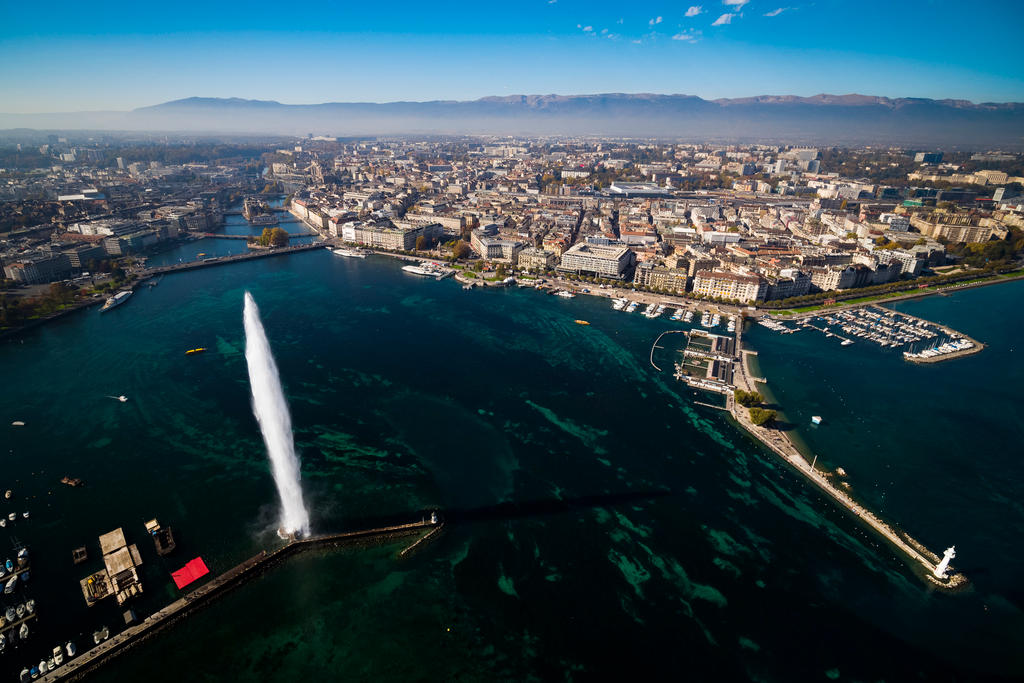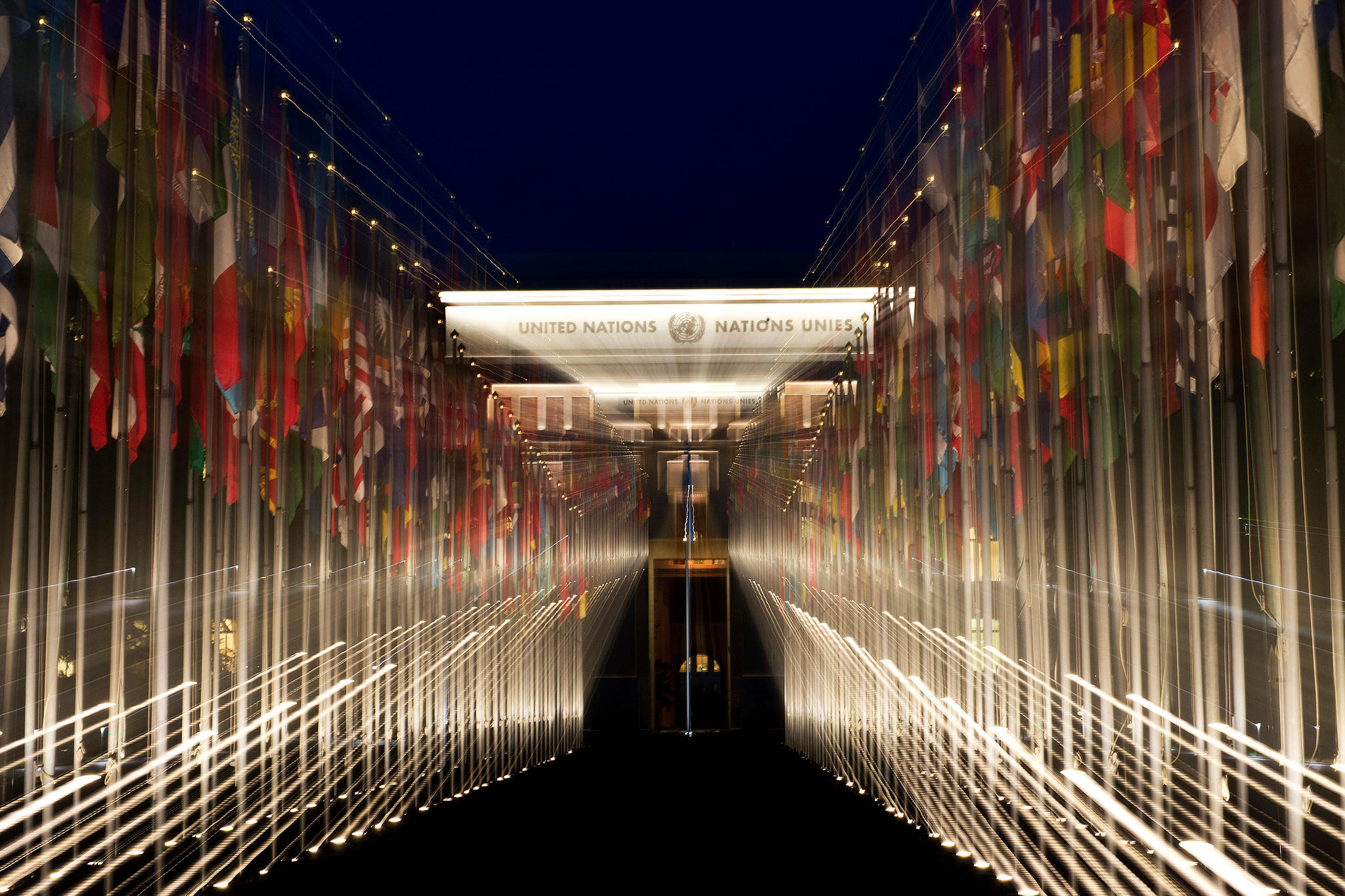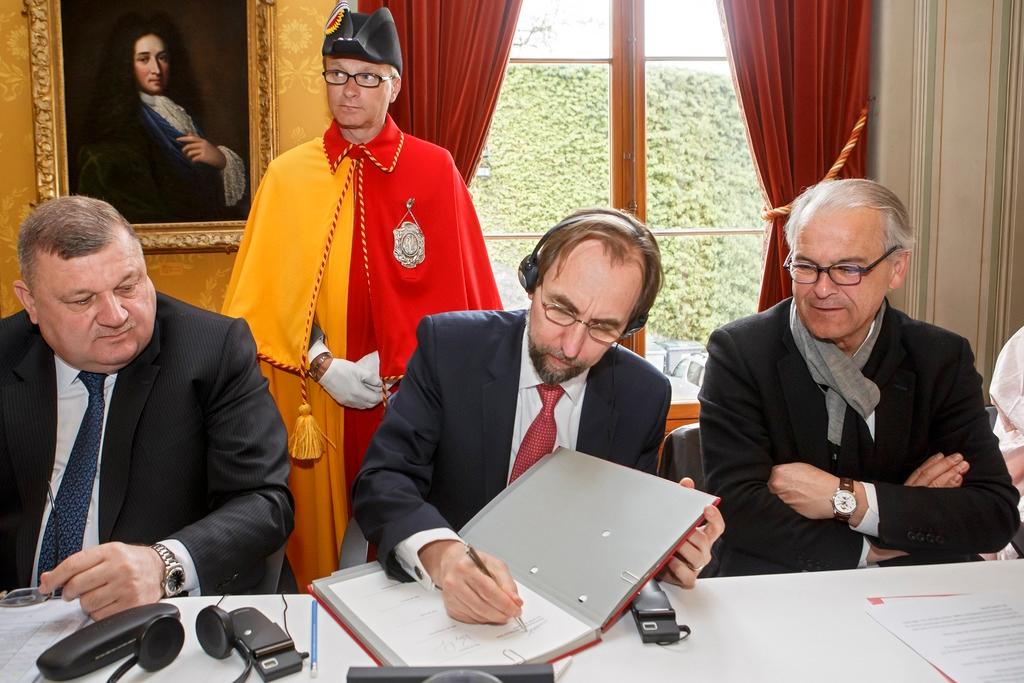
As cities grow in power, Geneva tries to follow

More and more, cities and mayors are taking an active role in building global governance structures. A new paper looks at Geneva’s efforts to keep up.
According to UN statistics, you’re probably not reading this in the countryside.
The global urban population, it says, has risen from 30% in 1950 to 55% today; by 2050 it will be over two-thirds. You may even be reading this in a ‘megacity’ (over 10 million inhabitants), of which 43 will exist by 2030; though it’s more likely you live – along with half of all urbanites – in a settlement of fewer than 500,000 people.
Asia and Africa will account for much of the growth. But that’s not to say Europe and the Americas are going the other way; it’s just that they’ve already urbanised to such a large extent. Some 82% of North Americans already live in towns and cities. The figure for Switzerland is 74%.
Naturally such shifts have big implications for how we will live in the coming century. They also mean we need to rethink how we operate at the international level, writes researcher Salome Eggler in a recent paper by think tank External linkforausExternal link that looks at the role of cities in global governance – with Geneva as a case study.
The biggest 21st-century problems, Eggler says – climate change, infrastructure, security – become even bigger in crowded cities. And yet, traditional global governance mechanisms remain state-centric and (often) paralysed by bickering.

More
How well do you know International Geneva?
Parallel structures
Quoting former New York City mayor Michael Bloomberg, who said that “while nations talk, cities act”, Eggler says that as media hones in on summits like the G7 or high-profile meetings between state leaders, cities have been creating parallel governance architectures for some time now.
They do this in four main ways, she writes. They engage in direct “city diplomacy”, whereby powerful mayors (think London, Paris, New York) talk directly with each other and with international leaders to advance their interests.
They also act as “governance facilitators”, creating forums for dialogue between international players (by hosting big conferences, for example); or they play the role of “norm pioneers” by enacting progressive legislation before the rest of their country.
And increasingly, she says, they are creating “city networks”.
Far from twee twinning partnerships, these have the grander aim of being “transnational alliances between urban governments that aim to address global challenges”: for example, the World Alliance of Cities Against PovertyExternal link; the C40External link, a core initiator of various CO2 reduction frameworks; or Mayors for PeaceExternal link, which aims to rid the world of nuclear weapons.
“Creating city networks is something of a trend,” says Eggler. But it’s one that brings benefits: sharing information with sister cities, increasing economic attractiveness, and boosting one’s brand (cities, like nations, depend upon perceptions; just look at how Berlin has become the cool capital of Europe).
Alice Charles, Project Lead with the World Economic Forum, agrees that such networks are beneficial both for cities and for plugging holes in the global system.
“Formal international mechanisms don’t yet recognise the importance of cities,” she says, mentioning the Paris AgreementExternal link on climate, signed only between countries. Such agreements presuppose good relations and communication between cities and the nations that house them, she says, something not always forthcoming (in the US, some cities have explicitly rejectedExternal link Trump Administration policies).
Cities are also the economic powerhouses of the 21st century, Charles says, and should be recognised as such: though they account for 55% of the global population, they contribute over 80% of GDP – an imbalance that makes all the more ironic recent populist-driven backlashes by “rural left-behinds” against urban elites.
International Geneva
What about Geneva, the Swiss ‘international city’ par excellence?
A historic reputation that far outstrips its modest size; home to a plethora of UN organisations, NGOs, and think-tanks; a high average income; a cosmopolitan melting pot where almost 200 nationalities live together – in short, all the ingredients of a leading, if small, city are there.
Eggler says it is not making full use of its potential. According to her analysis, while Geneva is a member of some 16 city networks, it only works proactively in four of them, and doesn’t use its unique position to show leadership in bringing cities together.
It should found its own network, she writes, one which addresses some problem of global governance not yet covered, such as conflict prevention: an area in which the city – despite being remarkably safe itself – has much expertise, from the ICRC to think-tanks and the UN itself.
Alice Charles agrees with this but is more scathing overall.
“It is unbelievably complacent,” she says, referring to the efforts of city authorities to position Geneva. The banking sectors and the multilateral organisations that have traditionally been the motors of the local economy currently stand on shaky ground, and yet she says that “there is nothing being done to keep Geneva on the map as an international city”.
She mentions a lack of attractive conditions for the approximately 40,000 international civil servants in Geneva – simple things like childcare facilities and access to the rental market that are often a nightmare for foreign workers. And with the high cost base of the city, the UN is already starting to look at cheaper locations.
As for building networks, she says, Geneva could also be a central hub for mayors to come together and discuss pressing concerns while having access to limitless international expertise; but this isn’t happening.

More
Saving the spirit of communities through cultural heritage
Bridging the gap
Luca Nizzola of Geneva’s external relations department (it is the only Swiss city apart from Zurich to have such a unit) sees no need to panic.
The traditional gap between “local” and “international” Geneva is being addressed by several projects, he says, including the UN-led Perception Change projectExternal link and humanitarian-themed eventsExternal link jointly organised by the city and the international community. The lack of integration of foreigners (40% of the local population) is targeted by a campaign aimed at informing those eligible to vote in local elections (after 8 years in the country).
As for city networks, which fall largely under his department’s remit, they require time, money, and people, he says: resources that are often required elsewhere.
Indeed, even when the will and the expertise is present – such as the case of “Geneva Plus”, an initiative spurred by the UN and ex-EPFL head Patrick Aebischer to position the city as global hub for science and innovation – political roadblocks can still arise, in this case at the national level, as Le Temps recently reported (in French)External link.
But despite political processes being sometime reluctant to change – and despite some predictionsExternal link of technology leading to a “de-urbanisation” in the future – for now the direction is clear; cities are still growing and they want to throw their weight around.
Geneva participates or is a member of some 16 intercity networks at the international or regional level. These include Mayors for Peace, the United Cities and Local Governments (UCLG), World Alliance of Cities Against Poverty, and the Rainbow Cities Network.
It’s most substantial involvement, according to Luca Nizzola, is with the World Network of Francophone Local PoliticiansExternal link, to which it contributes a budget of CHF50,000 ($50,177) annually.
In April 2018, it also co-created a network of cities aimed at protecting valuable cultural heritage from destruction by jihadist and other violence.
The strategy of the city is mostly decided at the local political level, by the five-member executive board that also comprises the mayor, who changes each year. The current mayor of Geneva is Sami Kanaan.
Geneva is also home to a range of thematic networks and platforms that try to coordinate the work of the various agencies, think-tanks, and NGOs in the city; a list can be found hereExternal link.

In compliance with the JTI standards
More: SWI swissinfo.ch certified by the Journalism Trust Initiative


























You can find an overview of ongoing debates with our journalists here . Please join us!
If you want to start a conversation about a topic raised in this article or want to report factual errors, email us at english@swissinfo.ch.